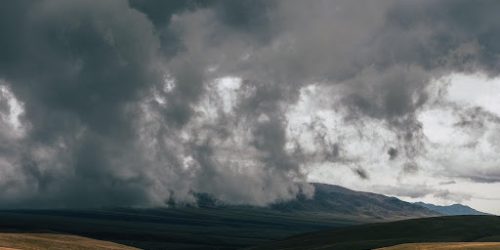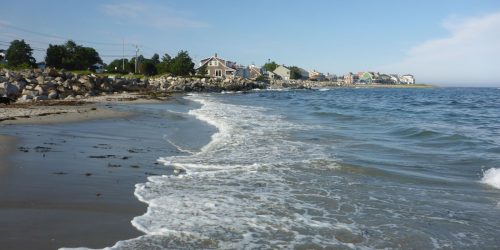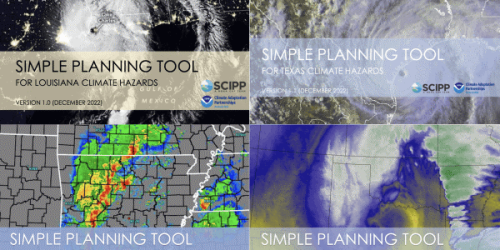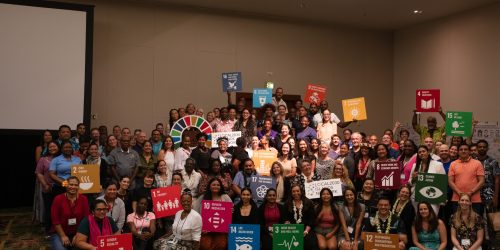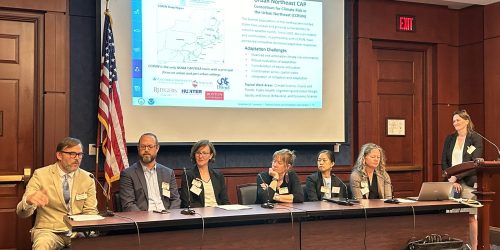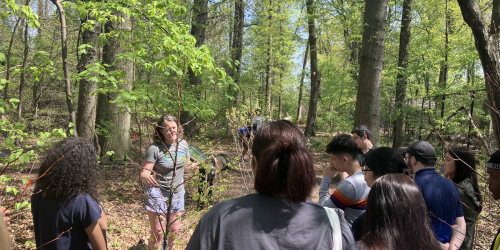NOAA’s Regional Integrated Sciences and Assessments (RISA) Program is announcing two new five-year awards totaling $7.3 million to research institutions in Arizona/New Mexico and California/Nevada to improve the expertise and ability of decision makers to prepare and plan for hazards and extreme events.The interagency National Integrated Drought Information System (NIDIS) co-funds drought components of these awards.

For more than 20 years, the NOAA Regional Integrated Sciences and Assessments (RISA) Program has been producing actionable weather and climate research, helping to reduce economic damages that Americans face every year due to droughts, floods, forest fires, vectorborne diseases, and a host of other climate and extreme weather impacts. The network of eleven RISA teams across the country work hand-in-hand with stakeholders and decision makers in regions across the United States to ensure that research and information is responsive to their needs.The sustained regional presence of RISA enables teams to effectively support responses to extreme events.
The two regional teams funded in FY17, chosen competitively by an independent, expert review panel, will work closely with communities, resource managers, land planners, public agencies, nongovernmental organizations, and the private sector to advance new research on how weather and climate will impact the environment, economy, and society. These teams will also develop innovative ways to integrate climate information into decision-making. Over the next five years, the teams will build upon their ongoing relationships with decision makers in their regions and develop new partnerships. Both regional teams have been part of the RISA network for over 15 years.
The new awards cover a range of topics, including water and coastal resources, fire management, energy, drought, agriculture, human health, transportation, and resilience of urban and rural communities to extreme events. Each team focuses on the topics of most importance to their region, which they identify through iterative engagement, research and partnerships with regional stakeholders.
The two new RISA FY17 awards include:
- California and Nevada region: lead institutions are the Scripps Institution of Oceanography and the Desert Research Institute; focus on water resources management, wildfires, drought and flooding, sea level rise and coastal communities.
- Arizona and New Mexico region: lead institutions are the University of Arizona and New Mexico State University; focus on water resources management, drought, farming and ranching, urban heat, transportation, and human health.
RISAs represent an effective method to co-design and co-develop knowledge about climate and its impacts through partnerships among scientists and decision-makers. RISA teams work closely with NOAA entities including National Weather Service offices and the NOAA-supported Sea Grant network and Regional Climate Centers as well as its federal, state, and local partners. The teams have strong connections with federal initiatives such as the Department of Interior’s Climate Science Centers and Landscape Conservation Cooperatives and USDA’s Climate Hubs. They are also significant contributors to the National Integrated Drought Information System (NIDIS) Regional Drought Early Warning Systems.
The new RISA partnerships join a network of 9 currently funded RISAs including:
- Alaska Center for Climate Assessment and Policy (ACCAP) – University of Alaska Fairbanks
- The Carolinas Integrated Sciences and Assessments Program (CISA) – University of South Carolina
- Climate Impacts Research Consortium (CIRC): Oregon State University
- Consortium on Climate Risk in the Urban Northeast (CCRUN): Columbia University
- Great Lakes Integrated Sciences and Assessments (GLISA): University of Michigan and Michigan State University
- Mid-Atlantic Regional Integrated Sciences and Assessments (MARISA): RAND Corporation and Penn State University
- Pacific RISA: East-West Center, Hawaii
- Southern Climate Impacts Planning Program: University of Oklahoma and Louisiana State University
- Western Water Assessment: University of Colorado
RISA is a program in the Climate Program Office, within NOAA’s Office of Oceanic and Atmospheric Research. Research produced by the RISA program has educated, informed, and closely interacted with thousands of decision makers across the nation, helping them build the expertise to better plan and prepare for extreme weather events and climate variability. Learn more about the RISA program and teams.



